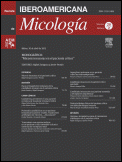
REVISTA IBEROAMERICANA DE MICOLOGIA
Scope & Guideline
Connecting Scholars Through the Lens of Mycology
Introduction
Aims and Scopes
- Clinical Mycology:
Focused on the diagnosis, treatment, and management of fungal infections in immunocompromised and immunocompetent patients. This includes case reports and literature reviews that address clinical challenges and emerging fungal pathogens. - Fungal Pathogen Research:
Investigates the biology, ecology, and epidemiology of various fungal species, particularly those causing significant health concerns in clinical and veterinary settings. - Diagnostic Techniques and Innovations:
Explores advancements in diagnostic methodologies, including molecular techniques and mass spectrometry, to improve identification and management of fungal infections. - Therapeutics and Resistance:
Examines antifungal treatments, resistance mechanisms, and the efficacy of new therapeutic agents against fungal infections. - Environmental and Animal Mycology:
Studies the impact of fungi in environmental contexts and their role in animal health, including zoonotic diseases and fungal infections in pets and livestock.
Trending and Emerging
- Invasive Fungal Infections in Immunocompromised Patients:
There is a noticeable increase in the publication of case reports and studies addressing invasive fungal infections, particularly in patients with compromised immune systems, highlighting the growing concern over these infections in clinical practice. - Molecular Diagnostics and Identification:
The rise of studies utilizing advanced molecular techniques for the identification of fungal pathogens indicates a trend towards more precise diagnostics, which is crucial for effective treatment. - Fungal Resistance and Antifungal Stewardship:
Research on antifungal resistance mechanisms and strategies for effective antifungal stewardship is becoming more prominent, reflecting an urgent need to address the challenge of resistant fungal strains. - Zoonotic Fungal Infections:
An emerging focus on fungal diseases that affect animals and can be transmitted to humans, particularly in the context of pets and livestock, is gaining interest and relevance in the journal. - COVID-19 and Fungal Coinfections:
The impact of COVID-19 on the prevalence and severity of fungal infections has led to an increase in studies examining the interplay between viral and fungal pathogens, which is a significant concern in the current health landscape.
Declining or Waning
- Historical Mycology:
Articles focusing on historical perspectives or long-term epidemiological studies on fungal infections have become less frequent, possibly as the field shifts towards more immediate clinical applications and innovative research. - General Mycological Education:
Content aimed at broad educational topics in mycology, such as introductory overviews or general fungal biology, seems to be waning as the journal emphasizes more specialized and clinical studies. - Non-Clinical Fungal Studies:
Research that does not directly relate to clinical implications or human health, such as basic ecological studies of fungi, appears to be less represented in recent issues.
Similar Journals
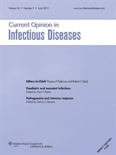
CURRENT OPINION IN INFECTIOUS DISEASES
Fostering Critical Discussions in Infectious Disease TrendsCURRENT OPINION IN INFECTIOUS DISEASES, published by Lippincott Williams & Wilkins, is a premier journal that focuses on the latest developments and understanding in the field of infectious diseases. With its ISSN 0951-7375 and E-ISSN 1473-6527, this journal has gained recognition for its pivotal role in advancing knowledge from 1988 to its current publications in 2024. Boasting an impressive Q1 ranking in both Infectious Diseases and the Medical Microbiology category, it holds a reputable position among the top journals in the field. The journal serves as an essential resource for researchers, professionals, and students alike, providing them with timely reviews, analyses, and perspectives that shape contemporary practice and policy. While lacking open access options, it ensures a critical examination of emerging trends and unique insights that foster informed discussions. With its consistently high impact factor, CURRENT OPINION IN INFECTIOUS DISEASES remains a vital platform for thought leaders and innovators navigating the complexities of infectious disease research.
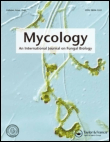
Mycology-An International Journal On Fungal Biology
Unlocking the Mysteries of Fungal BiologyMycology: An International Journal on Fungal Biology, published by Taylor & Francis Ltd, stands at the forefront of fungal research, facilitating the dissemination of knowledge across the diverse fields of infectious diseases, microbiology, and plant science. Established as an Open Access journal since 2010, it offers researchers free and immediate access to high-quality articles that advance our understanding of fungal biology and its applications. With a commendable ranking in Q2 for Infectious Diseases and Microbiology, and Q1 for Plant Science as of 2023, it positions itself as a vital resource for the global scientific community. The journal, conveniently located in the United Kingdom, is committed to publishing rigorous research that stimulates discussion and fosters collaboration among academics, practitioners, and students alike. By providing a platform for innovative studies and critical reviews, Mycology continues to play an essential role in unraveling the complexities of fungal organisms and their profound implications in health, agriculture, and ecosystem dynamics.
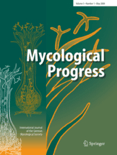
MYCOLOGICAL PROGRESS
Advancing fungal research for a sustainable future.MYCOLOGICAL PROGRESS, published by SPRINGER HEIDELBERG, is an esteemed journal dedicated to advancing the field of mycology and associated biological disciplines. With an ISSN of 1617-416X and an E-ISSN of 1861-8952, this journal has established itself as a leading source of high-quality research, evidenced by its impressive rankings in the Q1 quartile across various categories such as Agricultural and Biological Sciences, Ecology, and Plant Science. As of 2023, MYCOLOGICAL PROGRESS ranks 37 out of 193 in Agricultural and Biological Sciences (miscellaneous) and 183 out of 721 in Ecology, demonstrating its significant impact in the ecosystem of scientific literature. This journal not only aims to disseminate innovative research findings but also strives to foster interdisciplinary collaboration among scientists, ecologists, and agriculturists around the globe. While retaining a traditional model of publication, MYCOLOGICAL PROGRESS remains crucial for those seeking to deepen their understanding of fungal biology and its broader environmental implications.

Medical Mycology Journal
Exploring Innovative Solutions for Fungal PathogensMedical Mycology Journal is a leading publication in the field of medical mycology, dedicated to advancing the understanding and treatment of fungal infections. Published by the Japanese Society of Medical Mycology, this journal serves as an essential resource for researchers, clinicians, and students alike. With an ISSN of 2185-6486 and an E-ISSN of 2186-165X, it aims to provide high-quality peer-reviewed articles focusing on clinical and epidemiological studies, diagnosis, and novel therapeutic approaches related to fungal pathogens. Operating under a Q3 ranking in Infectious Diseases and having consistently published significant findings since its establishment in 2011, the journal is pivotal for those working at the intersection of mycology and infectious disease management. Although currently non-open access, the journal's insights are vital for expanding knowledge in this critical area of healthcare, addressing pressing global health challenges linked to fungal infections.
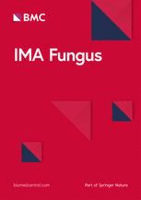
IMA Fungus
Advancing Knowledge in Fungal and Plant Sciences.IMA Fungus is an esteemed open-access journal published by BMC, dedicated to advancing research in the fields of fungi, plant sciences, and ecological systems. With an ISSN of 2210-6340 and E-ISSN 2210-6359, this journal has been an influential platform since its inception in 2010, contributing significantly to the scientific community in the United States and beyond. The journal’s remarkable impact can be seen in its Q1 quartile rankings across multiple categories, including Agricultural and Biological Sciences, Ecology, Evolution, Behavior and Systematics, and Plant Science, positioning it among the top literary sources in these fields. Notably, IMA Fungus holds impressive Scopus rankings, with the Agricultural and Biological Sciences category placing it in the 98th percentile, evidencing its crucial role in disseminating impactful research. Given its commitment to fostering accessibility and collaboration, IMA Fungus continues to be an invaluable resource for researchers, professionals, and students aiming to explore and understand the complex roles of fungi within various ecosystems.
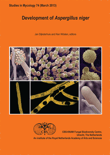
STUDIES IN MYCOLOGY
Fostering Innovation in Mycology ResearchSTUDIES IN MYCOLOGY is a premier journal dedicated to advancing research in the field of mycology, published by the renowned WESTERDIJK FUNGAL BIODIVERSITY INSTITUTE. With an impact factor that places it in the top quartile (Q1) of both Agricultural and Biological Sciences and Plant Science categories, it holds a prestigious position in the scientific community, ranking #1 out of 193 in its field as per Scopus metrics. Since its transition to Open Access in 2008, it has made significant strides in disseminating high-quality research widely, fostering a greater understanding of fungal biodiversity and its ecological impact. Covering a broad spectrum of topics related to mycology, the journal aims to provide researchers, professionals, and students with a platform for sharing innovative findings, stimulating academic discourse, and promoting collaborative efforts within this vital area of study. Hailing from the Netherlands, STUDIES IN MYCOLOGY serves as an invaluable resource for exploring the complexities of fungi, their interactions with various ecosystems, and their practical applications in agriculture and beyond.
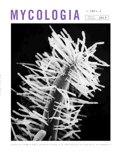
MYCOLOGIA
Innovative insights into fungal biology and ecology.MYCOLOGIA, published by Taylor & Francis Inc, is a prestigious journal that has been at the forefront of fungal research since its inception, with converging years of publication from 1945 to 2024. This interdisciplinary journal, identified by ISSN 0027-5514 and E-ISSN 1557-2536, stands out in various scientific categories, achieving Q1 rankings in Ecology, Evolution, Behavior and Systematics, as well as Plant Science, alongside strong performances in Cell Biology and Molecular Biology categories. With an impact factor that reflects its significance in the field, MYCOLOGIA appeals to a diverse audience, including researchers, professionals, and students dedicated to advancing the understanding of fungal biology and its ecological implications. Notably, while it does not currently operate under an Open Access model, the journal remains a vital resource for those pursuing groundbreaking discoveries in mycology and related disciplines.

SYDOWIA
Advancing Ecological Insights for a Sustainable FutureSYDOWIA is a prestigious academic journal based in Austria, published by Verlag Ferdinand Berger Sohne Gesellschaft mbH, that has been a cornerstone of scientific publishing since its establishment in 1996. With an ISSN of 0082-0598, SYDOWIA focuses on critical research in the fields of Ecology, Evolution, Behavior and Systematics as well as Plant Science, earning a notable classification in Category Quartiles with Q3 in Ecology-related disciplines and Q2 in Plant Science for 2023. The journal’s strategic insights into agricultural and biological sciences have secured a place within the Scopus rankings, where it holds the position of #191 out of 516 in Plant Science and #278 out of 721 in Ecology categories—reflecting its growing influence with a percentile standing of 63rd and 61st, respectively. Although SYDOWIA is not an Open Access journal, it continues to thrive in delivering scholarly articles that promote advancement and innovation in ecological and botanical research. Researchers, professionals, and students alike can rely on SYDOWIA as a vital resource for disseminating knowledge and fostering exploration in these essential scientific domains.

mSphere
Unleashing the power of molecular exploration.mSphere is a leading open-access journal published by the American Society for Microbiology, dedicated to the dynamic fields of Microbiology and Molecular Biology. Since its inception in 2016, mSphere has rapidly established itself as a reputable source of scholarly research, achieving notable impact factors and excellence within the academic community. The journal ranks in the top quartile (Q1) amongst its peers in Microbiology, and Q2 in the field of Molecular Biology, demonstrating its significance and relevance through Scopus rankings—specifically, it holds the #42 spot out of 182 in the Microbiology category and #108 out of 410 in Molecular Biology. With an editorial commitment to advancing the understanding of microbial and molecular sciences, mSphere provides an accessible platform for researchers, professionals, and students alike to disseminate groundbreaking findings. The journal promotes rigorous peer-review and invites innovative contributions aimed at enhancing microbial research mobility and molecular exploration. Accessible openly since 2016, mSphere continues to thrive as an influential publication driving scientific dialogue and discovery in the microbiological sciences.

Therapeutic Advances in Infectious Disease
Transforming knowledge into therapeutic breakthroughs.Therapeutic Advances in Infectious Disease is a distinguished journal published by SAGE Publications Ltd, dedicated to advancing knowledge in the vital field of infectious diseases and pharmacology. With an impactful Open Access model since 2019, the journal facilitates unrestricted access to a wealth of high-quality research, enabling researchers, clinicians, and educators to stay at the forefront of infectious disease management and treatment. As a recognition of its contribution to the scientific community, the journal holds a prestigious Q1 quartile ranking in both Infectious Diseases and Medical Pharmacology as of 2023, underscoring its influence and relevance in these domains. The journal is positioned favorably within the Scopus rankings, with an impressive standing in the diverse categories of Medicine, emphasizing its commitment to disseminating innovative research. Through a rigorous peer-review process and a broad scope that covers therapeutic advancements, Therapeutic Advances in Infectious Disease serves as an essential resource for anyone involved in combating infectious diseases, offering insights that drive clinical applications and enhance patient care.